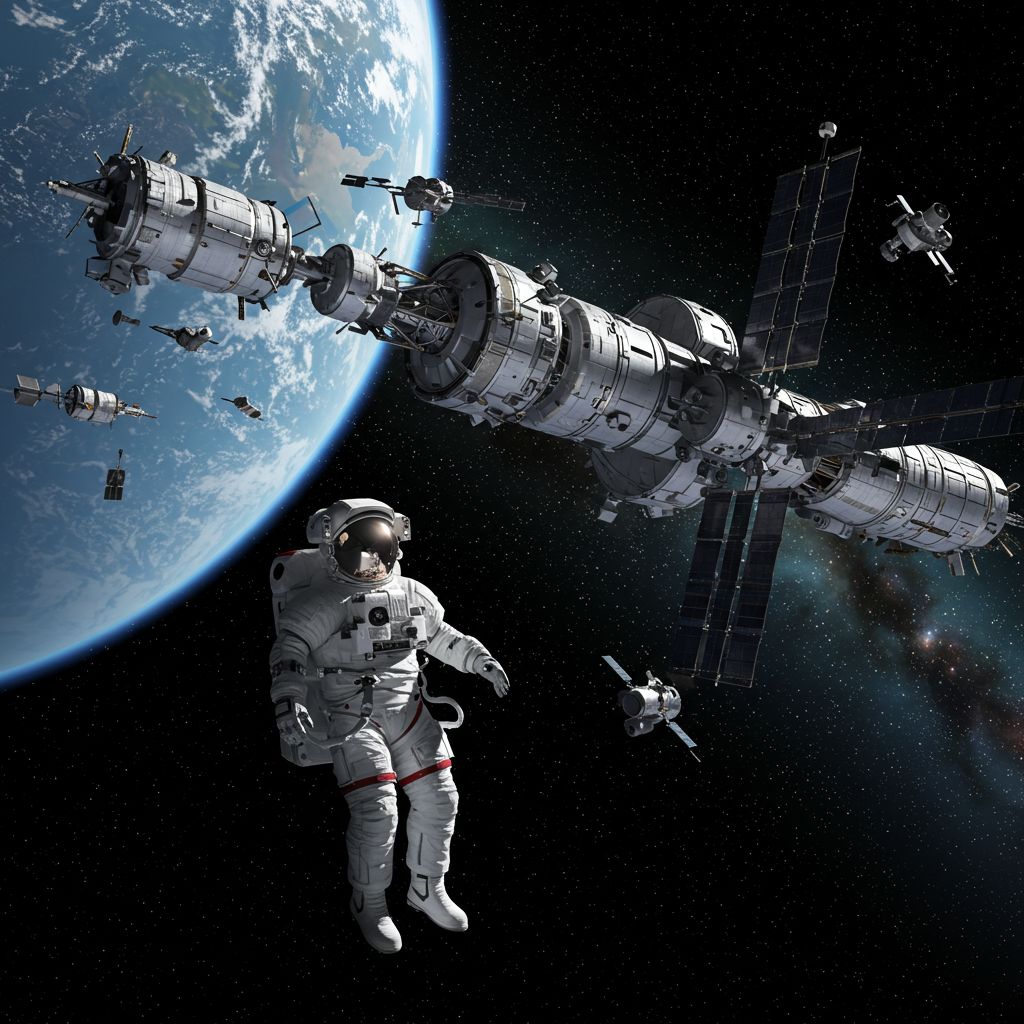Introduction
In recent years, the United Arab Emirates has emerged as a key player in the regional and global space sector, thanks to its ambitious strategy and pioneering projects such as “Hope Probe” and the Emirati Lunar Mission. This achievement would not have been possible without international collaboration with major space agencies and leading research institutions. The integration of local expertise with global partnerships has enabled the UAE to fast-track years of experimentation and position itself among the countries leading the space exploration race.
The Beginning of the Journey: Cooperation with International Partners
Since launching its space program, the UAE has placed great importance on building strategic partnerships with global space agencies such as NASA, the European Space Agency (ESA), and JAXA in Japan. Emirati astronauts have trained under international experts at advanced facilities, including Russia’s Gagarin Cosmonaut Training Center and NASA in the United States, providing them with the technical and practical knowledge needed to undertake complex missions.
The UAE has also participated in joint research projects with international universities, contributing to the development of remote sensing technologies and advanced scientific instruments, which were used in missions like the Hope Probe to study Mars’ atmosphere.
Significant Achievements Strengthening Cooperation
The launch of the Hope Probe in July 2020 marked a major milestone, not only as the first Arab probe to reach Mars’ orbit but also because it relied heavily on close cooperation with global partners. The probe was developed in collaboration with U.S. universities, such as University of Colorado Boulder and University of California, Berkeley, facilitating knowledge exchange and technology transfer.
In terms of manned space missions, Emirati astronaut Hazzaa Al Mansoori became the first Arab to reach the International Space Station (ISS) in 2019 through collaboration with Russia’s Roscosmos. Subsequently, Sultan Al Neyadi continued the historic mission, spending six months aboard the ISS through a partnership between the Mohammed bin Rashid Space Center and NASA, conducting scientific experiments that enhanced the UAE’s position in the global space community.
Future Projects
The UAE does not stop at past achievements but is focused on ambitious future projects that heavily rely on international cooperation. One of the most notable is the Emirati Lunar Mission, aiming to send the Rashid Rover to the Moon’s surface to study its soil and environment. This mission is being executed in collaboration with Japanese companies such as ispace, as well as leveraging technologies from European and American partners.
The UAE also seeks participation in major international initiatives like the Lunar Gateway, led by NASA and the ESA, which will allow the UAE to contribute to global efforts to return humans to the Moon.
Building Human Capital Through Partnerships
Another aspect of international cooperation is the development of human resources. The UAE has sent dozens of students and researchers to study and train at world-class universities and space centers. This investment in human capital aims to build a local scientific base capable of independently leading future projects while continuously benefiting from international expertise.
This approach reflects the UAE leadership’s vision that the success of any space program relies not only on technology but also on nurturing new generations of scientists and engineers equipped with knowledge and the ability to innovate.
Space Diplomacy as a Tool to Strengthen Relations
Space collaboration also serves as an effective diplomatic tool. Through international partnerships, the UAE has strengthened relations with major countries such as the United States, Japan, Russia, and the European Union. These collaborations have also positioned the UAE as a regional facilitator, engaging other Arab countries in joint space projects.
Conclusion
The UAE has proven that space exploration is no longer exclusive to traditional space powers. Ambitious nations can secure a place among the leading countries through a clear vision and strategic partnerships. Collaborating with global agencies has provided the UAE not only with technology and knowledge but also with credibility as a reliable partner in international space projects. Thanks to these efforts, the UAE continues to chart a promising future in space exploration, demonstrating that its ambitions know no bounds.


Leave a Reply
You must be logged in to post a comment.